Affiliate Disclaimer
Some links in this article are affiliate links. We may earn a small commission if you make a purchase through these links, at no extra cost to you. We only recommend products we find useful to our readersTrying to conceive can be an emotional journey, filled with hope, anticipation, and uncertainty. Each month brings renewed optimism about becoming a parent. You take every step to plan for a family—only to face the heartbreak of unexpected fertility challenges.
Various factors impact reproductive health, and one often underestimated factor is vitamin D. Vitamin D has been linked with bone health but also plays a significant role in fertility. It is essential to know how to maintain vitamin D levels for easy conception.
We live in a modern world, with fast-paced lifestyles, spent majorly indoors. This leaves us with very little time to focus on our well-being or even to step outside in the sun. This has led to vitamin D deficiency and impacts fertility and its outcomes. In this article, let’s understand how vitamin D helps fertility and ways to improve it with a few effective tips.
Read More: Effective Ovulation Tracking: Top Tools and Methods for Conception
What is Vitamin D and Why is It Important?
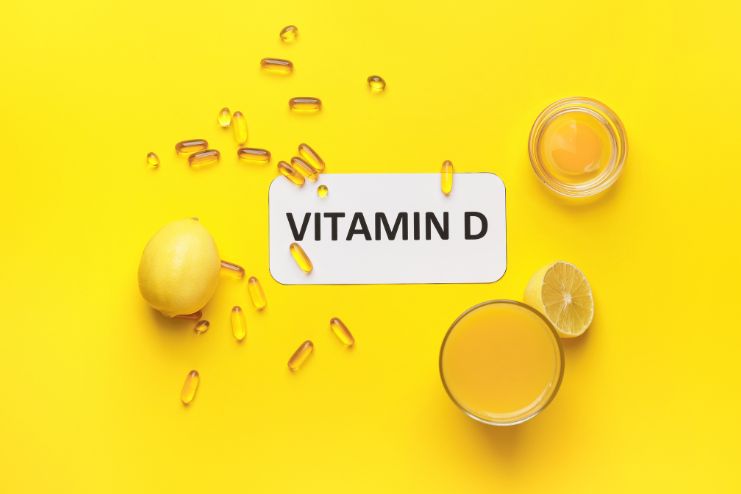
Vitamin D is a fat-soluble vitamin needed for many of the body’s functions. Vitamin D helps the body control calcium and phosphorus levels, and it maintains bone health, controls the immune system, and affects the production of hormones.
The sun is a natural source of vitamin D, while food sources like fatty fish, fortified dairy products, eggs, and mushrooms also provide it in significant amounts.
How is Vitamin D Linked to Fertility?
Vitamin D has an important role to play in the reproductive health of men and women. Read to know more!
1. Ovulation and Hormone Regulation:
Good levels of vitamin D facilitate well-balanced reproductive hormones, estrogen, and progesterone, which control ovulation and menstrual cycles. Research indicates that women with sufficient vitamin D have regular cycles and enhanced ovarian function.
2. Egg Quality and Ovarian Reserve:
Vitamin D receptors have been found in the ovaries, demonstrating its function in egg maturation. Studies indicate that women with optimal vitamin D concentrations also have better Anti-Müllerian Hormone (AMH) levels, as much as 36% higher, a marker of ovarian reserve and potential fertility.
3. Implantation and Pregnancy Success Rates:
Vitamin D might make the uterine lining more receptive to implantation. It also decreases inflammation, which is essential for pregnancy. Studies have also shown that women with sufficient vitamin D levels have a higher success rate in IVF treatments.
Read More: 8 Most Effective Prenatal Vitamins for Hair Growth
Vitamin D Deficiency and Female Infertility
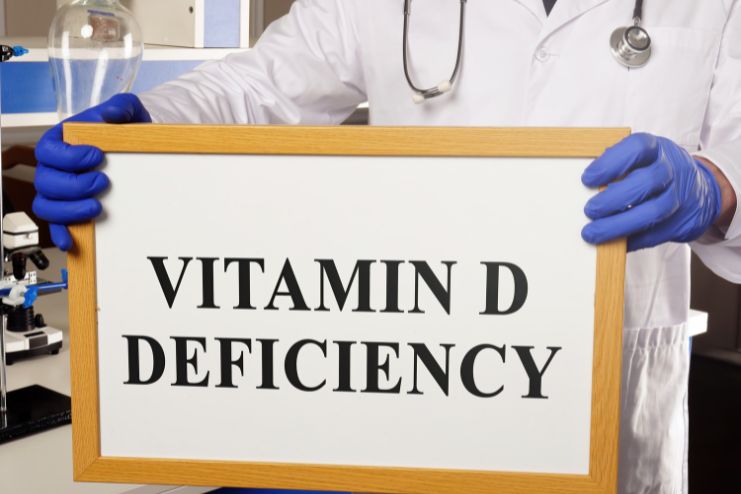
Vitamin D deficiency is on the rise, particularly among women within the reproductive age. The primary causes are:
- Limited Exposure to Sun: Limited sunlight exposure, or spending maximum time indoors makes us prone to Vitamin D deficiency.
- Nutritional Deficiencies: Vitamin D deficiency occurs due to insufficient consumption of vitamin D-rich foods.
- Obesity: Vitamin D is a fat-soluble vitamin, and an excess of body fat can affect its bioavailability.
- Medical Conditions: Certain conditions such as PCOS, endometriosis, and autoimmune disorders can disturb vitamin D metabolism.
Read More: Vitamin D Deficiency – Causes, Symptoms, Diseases And Treatment
Impact on Female Fertility
Let’s learn how vitamin D levels in females impact fertility and conception.
- Polycystic Ovary Syndrome (PCOS): Vitamin D deficiency is common in women with PCOS and shows up through symptoms like insulin resistance, irregular cycles, and anovulation.
- Hormonal Imbalances: Vitamin D deficiency can lead to disruptions in estrogen and progesterone, affecting menstrual regularity.
- Increased Risk of Miscarriage: Research suggests that low vitamin D levels may be linked to higher miscarriage rates.
Read More: 8 Productive Ways To Increase Vitamin D Absorption
Vitamin D and Male Fertility: Does It Matter?
Vitamin D is also essential for the reproductive health of men and affects sperm production and function.
- Sperm Quality: Vitamin D receptors are present in sperm. Adequate levels of vitamin D are linked with enhanced sperm motility, number, and morphology, all of which are critical factors in successful conception.
- Testosterone Production: Vitamin D is involved in testosterone production, which affects libido as well as general sperm health. It has been linked to reduced testosterone production and semen parameters.
- Conception Rates: Men with optimal vitamin D levels are more likely to conceive with their partners due to improved sperm function.
How to Know If You’re Vitamin D Deficient
Common symptoms of vitamin D deficiency – if you are trying to conceive, here are a few symptoms of vitamin D deficiency you must look out for:
- Fatigue and weakness in muscles.
- Bone aches and repeated fractures.
- Mood swings, depression, and related disorders.
- Repeated infections because of weak immunity.
Testing and Optimal Levels: A blood test for 25-hydroxyvitamin D level is suggested to evaluate the level of vitamin D in your body.
For fertility, optimal vitamin D levels are typically above 30 ng/mL, with levels between 40 and 60 ng/mL recommended for ideal reproductive health.
How to Boost Your Vitamin D Levels for Fertility:
Let’s understand a few simple yet effective ways that will increase Vitamin D levels helpful for fertility.
1. Sunlight Exposure:

Here’s the best way to get optimum sun exposure:
- Get a minimum of 30 minutes of sun exposure a minimum of three times a week, depending on skin color and location.
- The best time for vitamin D production is midday when UVB rays the strongest.
2. Dietary Sources:
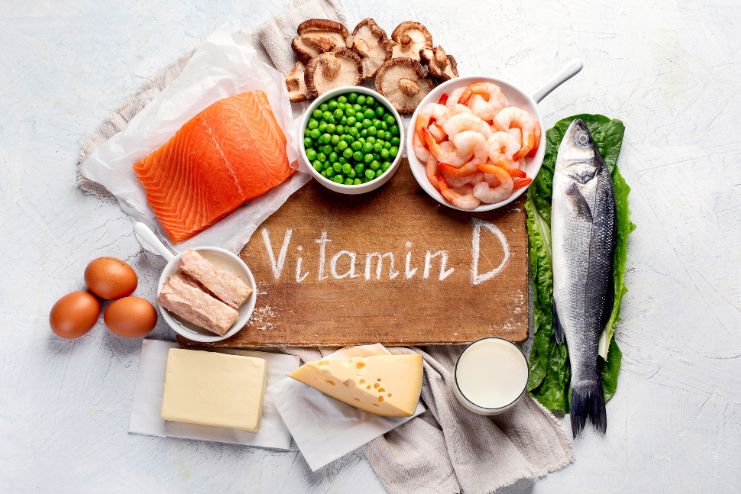
Include the following foods to help promote vitamin D levels in your body:
- Fatty Fish: Salmon, mackerel, sardines, and tuna.
- Dairy and Plant Alternatives: Fortified milk, yogurt, and plant alternatives such as almond or soy milk.
- Egg Yolks and Mushrooms: Natural sources of vitamin D.
3. Supplements:

Apart from dietary sources, here’s how vitamin D supplements help:
- Vitamin D3 (Cholecalciferol): More potent than D2 at increasing blood levels.
- Dosage: 2,000-4,000 IU of vitamin D daily is often suggested, but testing is necessary for individual dosing.
4. Co-factors for Absorption:
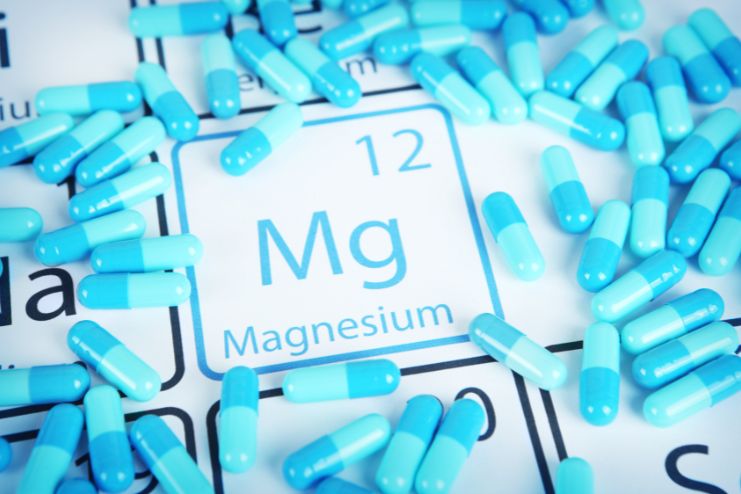
Vitamin D requires a few other essential factors to be absorbed more effectively. These include:
- Magnesium: Magnesium helps the body process vitamin D by activating enzymes in the liver and kidneys. This allows vitamin D to be converted into its active form, calcitriol (1,25-dihydroxy vitamin D), which is essential for maintaining healthy calcium and phosphate levels.
- Vitamin K2: Vitamin K2 helps vitamin D in maintaining calcium metabolism so that calcium is rightly used in the body. Vitamin D supports absorption, while vitamin K2 guides it to the bones by activating osteocalcin, a calcium-binding protein in Meanwhile, it activates the matrix GLA protein, preventing calcium from accumulating in arteries. The combination promotes healthy bones and minimizes arterial calcification.
- Omega-3s: Omega-3 fatty acids work with vitamin D to improve cell function and absorption. They support healthy cell membranes, which promote the utilization of vitamin D throughout the body. This synergy could also reduce inflammation, further contributing to overall well-being and fertility.
Read More: Know The Infertility Causes And Treatments
Does Vitamin D Supplementation Improve Fertility?
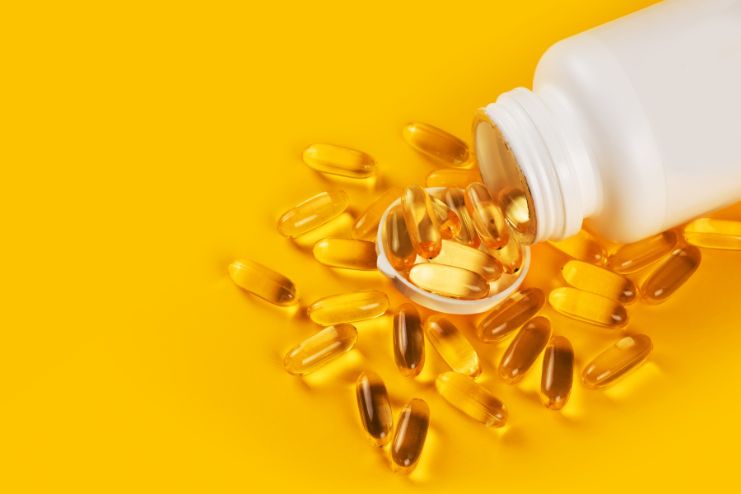
Studies show that supplementing with vitamin D, particularly in cases where there are deficiencies, can increase fertility. This is most notable in women with assisted reproductive therapies (ART) and PCOS, where improved levels of vitamin D correlate with increased pregnancy rates and improved reproductive outcomes. Three advantages include:
- Improved ovarian function and quality of eggs.
- Increased implantation and pregnancy rates among IVF patients.
- Improved sperm quality and testosterone levels in men.
Excessive intake of vitamin D can lead to toxicity, potentially causing kidney damage and calcium buildup (calcification). To prevent this, two things are essential: consulting a healthcare provider and ensuring the correct dosage.
If you wish to opt for an easier option, try vitamin D gummies here. We recommend consulting a medical practitioner before starting this!
Vitamin D3 Gummies

Read More: Understanding Hormonal Imbalance and Its Impact on Fertility
When Should I See a Fertility Specialist?
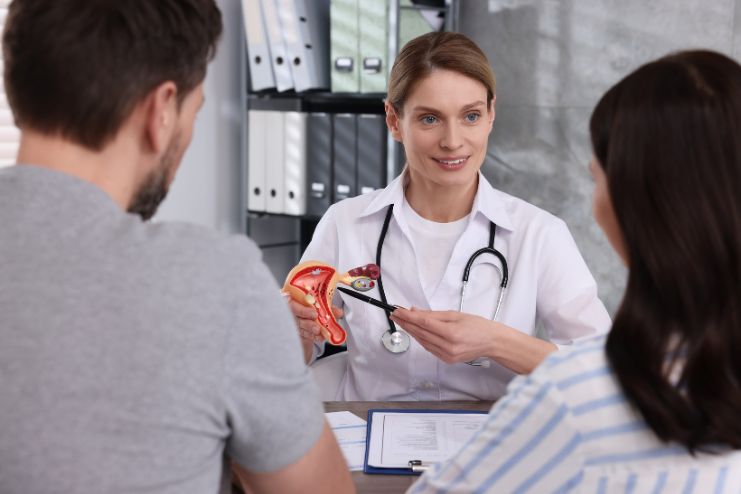
If you’ve been having difficulty conceiving for more than one year (six months, if you are more than 35) and if you have reproductive health issues, seek advice from a fertility expert. They will evaluate numerous aspects, including the vitamin D level in your body, and provide you with proper recommendations.
Conclusion:

The road to parenthood may be long, but including vitamin D in your diet can help make the journey easier by enhancing fertility. This vital nutrient is important for hormone balance, improved egg and sperm quality, and successful implantation.
Getting your daily dose of vitamin D is simple. Spend some time in the sunlight, eat a balanced diet, and take the right supplements when needed. Doing all this can also support your reproductive health.
However, if conceiving is still a challenge, we advise you to consult a medical practitioner to guide you in the right direction. A simple change of including the right amount of vitamin D in your lifestyle/diet is one step closer to your dream of parenthood.
References
- https://pmc.ncbi.nlm.nih.gov/articles/PMC6265788/
- https://pmc.ncbi.nlm.nih.gov/articles/PMC9896710/
- https://pmc.ncbi.nlm.nih.gov/articles/PMC7230517/
- https://pmc.ncbi.nlm.nih.gov/articles/PMC4566462/
- https://pmc.ncbi.nlm.nih.gov/articles/PMC7230517/
- https://www.nhs.uk/conditions/vitamins-and-minerals/vitamin-d/
- https://pmc.ncbi.nlm.nih.gov/articles/PMC7352921/
In this Article


















